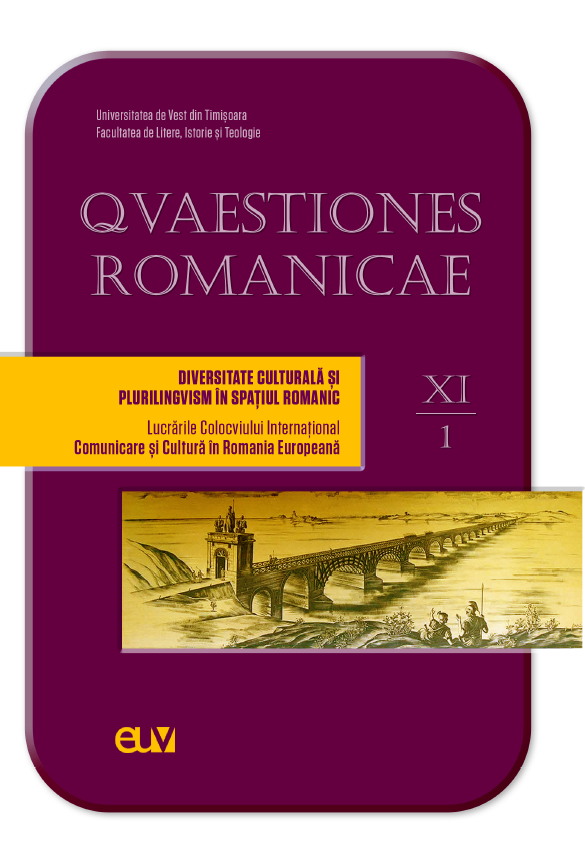Métamorphoser et optimiser l’enseignement de l’intercompréhension avec l’intelligence artificielle / ChatGPT : un avenir prometteur pour le plurilinguisme
Abstract: (Transforming and optimizing the teaching of intercomprehension with artificial intelligence / ChatGPT: a promising future for plurilingualism) In a world of misunderstandings and chosen or imposed individualisms, interest in plurilingualism or multilingualism - and through them, intercomprehension - has not disappeared. Traditionally, education for intercomprehension is a slow and fairly expensive process in terms of investment of effort and time. The emergence of remarkable Artificial Intelligence tools will irreversibly change the way students learn and teachers teach and learn themselves in the near future. Inevitably, the strength and speed with which a tool like ChatGPT will establish itself in the field of knowledge will influence the way intercomprehension is taught and learned. ChatGPT can represent a relevant source of information, a tool for the development of plurilingualism, and a competent assistant for scientific analyses. With proper guidance, it can create specific didactic tasks for philologists and non-philologists and offer them solutions. In this article, we will show how ChatGPT, rich in quality information, could both arouse the anxiety and exaltation of teacher-monitors and encourage the enthusiasm and self-sufficiency of learners. The demonstration will have two components, focusing on the use of ChatGPT in: a) the creation of flexible multilingual corpora, and b) the practice of two strategic elements (transparency and inferences) for understanding texts written in languages one does not master. The results of our analysis are encouraging to support the idea that ChatGPT is an extraordinary tool to support plurilingualism and intercomprehension. However, highlighting certain limitations or errors that occurred during tests allows us to assert that the use of Artificial Intelligence can only be beneficial for people who are critical thinkers, have a certain level of competence, or accept the advice of an intercomprehension specialist.
Keywords: intercomprehension, ChatGPT, Artificial Intelligence, learning-teaching, plurilingualism.
Résumé : Dans un monde d’incompréhensions et d’individualismes choisis ou imposés, l’intérêt pour le plurilinguisme ou le multilinguisme – et à travers eux, pour l’intercompréhension – n’a pas disparu. Traditionnellement, l’éducation pour l’intercompréhension est un processus lent et assez coûteux en termes d’investissement d’efforts et de temps. L’émergence d’outils remarquables d’Intelligence Artificielle changera irréversiblement, dans un avenir proche, la manière dont les élèves apprendront et dont les profs enseigneront et apprendront eux-mêmes. Inévitablement, la force et la rapidité avec lesquelles un outil comme ChatGPT s’imposera dans le domaine du savoir influenceront la manière d’enseigner et d’apprendre l’intercompréhension. ChatGPT peut représenter une source pertinente d’information, un outil pour le développement du plurilinguisme et un assistant compétent pour les analyses scientifiques. Avec un bon guidage, il peut créer des tâches didactiques adaptées pour les philologues et les non-philologues et leur proposer des solutions. Dans cet article, nous montrerons comment ChatGPT, riche en informations de qualité, pourrait à la fois susciter l’angoisse et l’exaltation des enseignants-moniteurs, et encourager l’engouement et l’autosuffisance des apprenants. La démonstration aura deux volets, concernant l’utilisation du ChatGPT dans : a) la constitution des corpus multilingues flexibles ; b) la pratique de deux éléments stratégiques (la transparence et les inférences) pour la compréhension des textes écrits dans des langues que l’on ne maîtrise pas. Les résultats de notre analyse sont encourageants pour conforter l’idée que ChatGPT est un outil extraordinaire pour soutenir le plurilinguisme et l’intercompréhension. Cependant, la mise en évidence de certaines limites ou erreurs survenues lors des tests permet d’affirmer que l’utilisation de l’Intelligence Artificielle ne peut être bénéfique que pour les personnes qui font preuve d’esprit critique, qui ont un certain niveau de compétence ou acceptent les conseils d’un spécialiste en intercompréhension.
Mots-clés : intercompréhension, ChatGPT, Intelligence Artificielle, apprentissage-enseignement, plurilinguisme.
